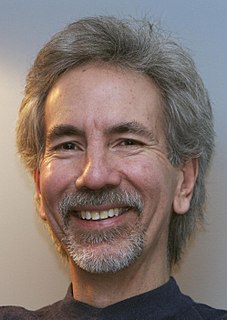A Quote by Mark Thomas
Most true believers, when faced with evidence that contradicts their beliefs, will hold on to those beliefs even more strongly.
Related Quotes
When examining evidence relevant to a given belief, people are inclined to see what they expect to see, and conclude what they expect to conclude. Information that is consistent with our pre-existing beliefs is often accepted at face value, whereas evidence that contradicts them is critically scrutinized and discounted. Our beliefs may thus be less responsive than they should to the implications of new information
Creative power has to filter through our beliefs, attitudes, emotions, and habits. The more negative and constricted our beliefs and patterns are, the more they block the creative energy. Most people hope that by ignoring negativity, it will go away, but the reverse is actually true. Through recognizing, acknowledging, and experiencing it, the blocked energy can be released. You are then free to replace it with positive beliefs and attitudes.
While I think in principle people should not have irrational beliefs, I should say that as a matter of fact, it is people who hold what I regard as completely irrational beliefs who are among the most effective moral actors in the world, in many respects. They're among the worst, but also among the best, even though the moral beliefs are ostensibly the same.
The birth of excellence begins with our awareness that our beliefs are a choice. We usually don't think of it that way, but belief can be a conscious choice. You can choose beliefs that limit you, or you can choose beliefs that support you. The trick is to choose the beliefs that are conducive to success and the results you want and to discard the ones that hold you back.

































